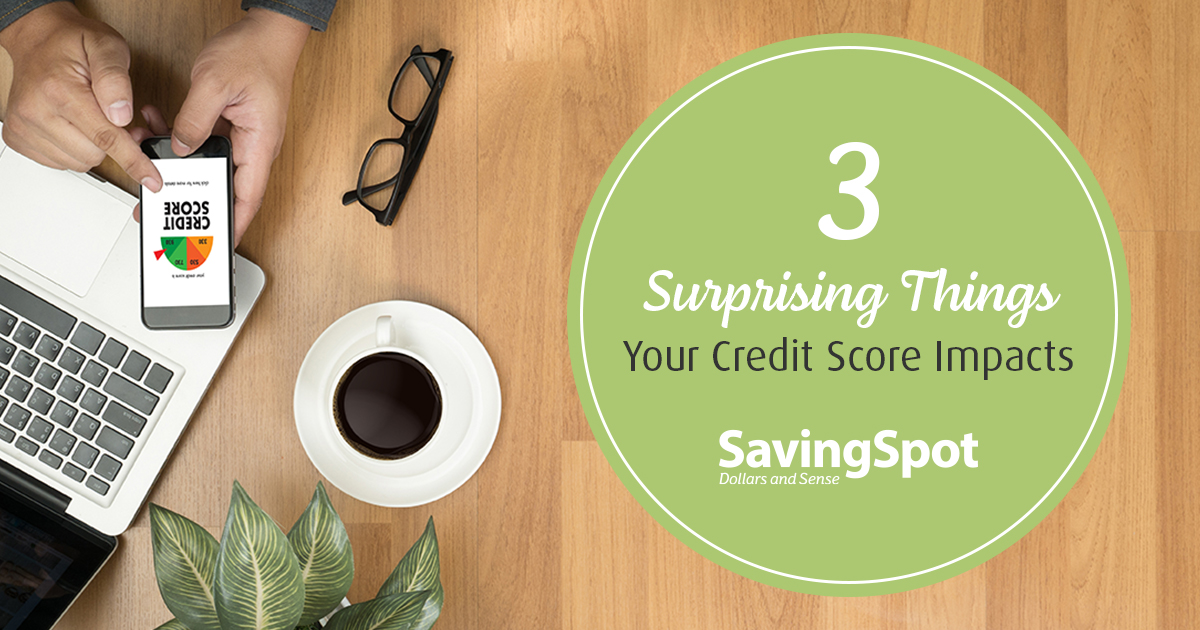Hidden Ways Your Credit Score Could Be Affecting You

If you’ve ever wondered whether it is possible to get through life without taking out a loan or going into debt, look no further than the United States national debt. Despite boasting the highest GDP of any nation, our government still has more debt than any other country. This shows that debt can be an important part of anyone’s financial strategy.
Debt is like fire: If you know what you’re doing with it, it can be a great tool. Used properly, loans can help you buy a home, pay for a car, or even invest in dividend-yielding assets that pay themselves off over time. But fire can also cause burns. Similarly, when used improperly, debt can quickly pile up and destroy things like your credit, limiting your ability to get loans or qualify for a credit card.
Your credit score doesn’t only impact your ability to take out loans. Sometimes you may receive credit checks without even realizing it. Bad credit (which is considered any score below 580) can sneak up on you in all areas of life, and limit your options in many ways. Read on to learn about the hidden ways a poor credit score could be hurting you without even knowing it.
Applying for a Bank Account
Setting up a bank account is one of the best ways to build wealth and save money. One of the first steps you can take to achieve financial success is finding a place to receive direct deposits, organize your money and build wealth. It stands to reason then, that access to checking and savings accounts play a major role in how well you are able to do financially in life.
However, with a low credit score, you may not be allowed to sign up for certain bank accounts. One of the reasons that banks require your Social Security number when you sign up is so they can perform a basic background and credit score check on you. Most banks do this in order to obtain members who don’t frequently overdraft or run out of money in their accounts. After all, your banking history plays a role in your overall credit score, and most financial institutions are going to want to know what it will be like to work with you before they approve you for an account.
It may seem like a catch-22: in order to apply for a bank, you’ll need a good credit score. But without a way to save money and build wealth, paying off debt and boosting your credit is going to be a challenge. Thankfully, there are options for people with lower credit scores looking to give themselves a financial boost and start building wealth. Second-chance banking services are banks that don’t check your credit score when you apply for them, allowing you to start saving money even with poor credit. Some even offer no monthly maintenance fees.
Hunting for a Job
The job searching process is long, stressful, and nerve-wracking. Nevertheless, hunting for jobs and new opportunities is a necessary part of life. Because of this, most people are looking for the process to be as smooth and simple as possible. However, this is not always the case, particularly in situations when the job seeker’s credit score is low. Many job background checks also look into an applicant’s credit score and financial history, in order to determine if they will be fit for the job.
There is a lot of controversy surrounding this subject, as many people feel that a person’s credit score has no impact on their ability to perform a job. Furthermore, denying someone a job based on their financial history can completely prevent them from improving their financial situation. Because of this, there are certain states that protect employees from having their credit score being screened during the job application process. Look into your state’s laws on the subject, to ensure that you are being treated fairly during your search for employment.
To read more, visit the original post: Hidden Ways Your Credit Score Could Be Affecting You.
Comments
Post a Comment